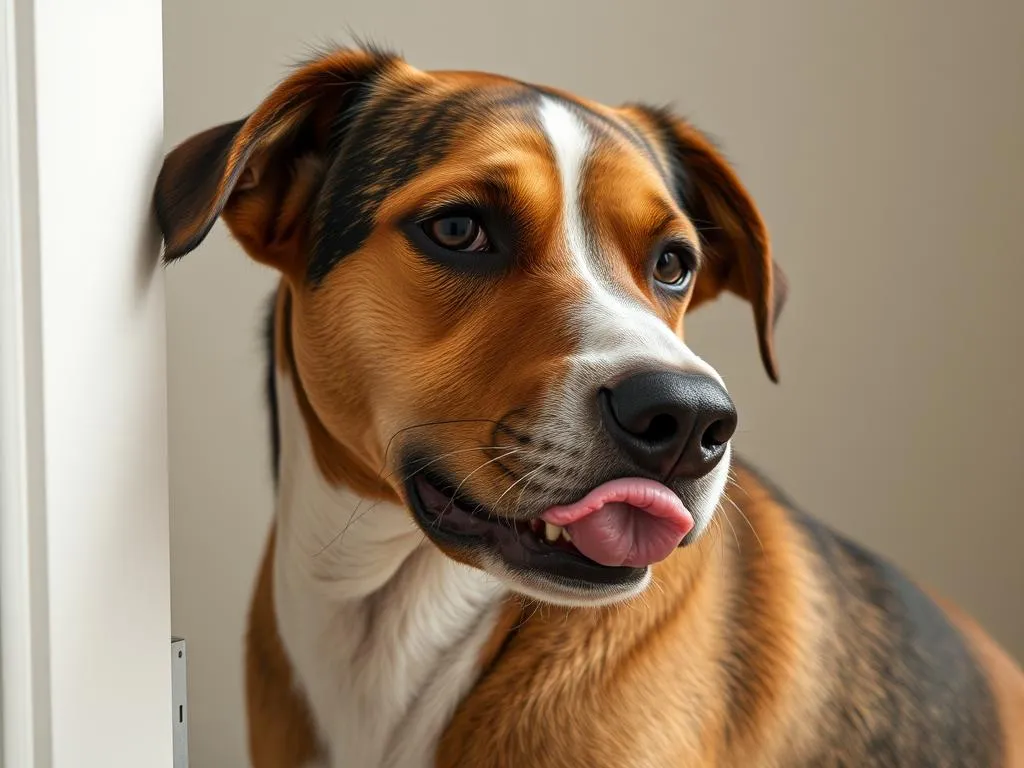
Introduction
As a responsible pet owner, one of your primary concerns is the health and well-being of your furry friend. Canine health care encompasses a wide range of topics, from nutrition to exercise, and even behavioral issues. One common behavior that often raises questions is when my dog keeps licking their private area. While some licking is a normal part of a dog’s grooming routine, excessive licking can indicate underlying health issues or behavioral problems. This article aims to shed light on the reasons behind this behavior, helping you understand when to seek veterinary assistance.
Understanding the Behavior
Normal Dog Behavior
Dogs are naturally inclined to groom themselves, and licking is an essential part of their hygiene routine. Just like cats, dogs use licking as a way to clean their bodies, and this behavior can also serve as a source of comfort. When your dog licks their private area, it may simply be a matter of keeping clean. However, it’s essential to differentiate between normal grooming and excessive licking.
When Licking Becomes Excessive
Excessive licking is defined as licking that occurs frequently and persistently, often to the point of irritation or injury. If your dog seems to be fixated on their private area, leading to redness, swelling, or hair loss, it may indicate a problem that needs addressing. Understanding the signs that indicate the behavior has become problematic is crucial for your dog’s health.
Common Reasons for Licking
Allergies
Allergies are one of the most common reasons for excessive licking in dogs. They can result from various sources, including:
- Food Allergies: Some dogs may react to specific ingredients in their food, such as grains or proteins.
- Environmental Allergies: Pollen, dust mites, or mold can trigger allergic reactions in dogs.
Symptoms of allergies may include itching, redness, and inflammation, which can lead to increased licking, especially in sensitive areas like the private parts.
Infections
Infections are another significant reason for excessive licking. Common infections that can affect dogs include:
- Urinary Tract Infections (UTIs): These can cause discomfort, leading dogs to lick their private areas frequently.
- Yeast Infections: Particularly common in moist areas of the body, yeast infections can cause intense itching and irritation.
Look for signs of infection, such as unusual odors, changes in urination habits, or discharge, as these can indicate a need for veterinary attention.
Skin Issues
Skin conditions are prevalent among dogs and can cause excessive licking. Common skin issues include:
- Hot Spots: These are localized areas of inflamed skin that can become very itchy and painful.
- Dermatitis: This condition can result from various factors, including contact with irritants or allergens.
If your dog is licking due to a skin issue, you may notice redness, swelling, or scabs alongside the licking behavior.
Behavioral Issues
Sometimes, excessive licking is not related to a physical issue at all but rather a behavioral one. Dogs may lick their private areas due to:
- Anxiety: Stressful situations or changes in their environment can lead to obsessive licking as a coping mechanism.
- Boredom: Lack of physical or mental stimulation can also contribute to this behavior.
Identifying the triggers for behavioral licking is crucial for developing an effective management plan.
Health Risks Associated with Excessive Licking
Skin Damage
Excessive licking can lead to significant skin damage, including:
- Wounds or Sores: Continuous licking can break the skin, leading to painful sores that may require medical treatment.
- Healing Complications: Wounds resulting from licking can become infected, complicating the healing process.
Monitoring your dog’s skin condition is essential to prevent these complications.
Infections
Licking can introduce bacteria into the skin, leading to secondary infections. This is particularly concerning in areas that are constantly moist or already irritated. Signs of infection may include:
- Increased Redness or Swelling
- Foul Odor
- Discharge
Early intervention is crucial to prevent the spread of infection and additional complications.
Behavioral Consequences
Excessive licking can evolve into a compulsive behavior, which can be challenging to manage. If left unaddressed, this behavior may escalate and lead to additional anxiety or stress-related issues. Understanding the underlying causes of licking is vital for prevention.
When to Consult a Veterinarian
Identifying Warning Signs
Knowing when to seek veterinary assistance is essential for your dog’s health. Be vigilant for warning signs, including:
- Persistent Licking: If your dog continues to lick despite efforts to distract or redirect them.
- Redness or Swelling: Any noticeable changes in the skin surrounding the area being licked.
- Change in Behavior: If your dog seems more anxious or withdrawn.
Timely intervention can prevent further health complications and discomfort for your pet.
What to Expect During a Vet Visit
When you consult a veterinarian, they will conduct a thorough examination of your dog. This may include:
- Physical Examination: Checking for signs of irritation, infection, or other underlying issues.
- Possible Tests: Your vet may recommend skin scrapings, urine tests, or allergy testing to determine the cause of the excessive licking.
Based on the findings, your vet will suggest appropriate treatments or further diagnostic steps.
Treatment Options
Medical Treatments
If your veterinarian determines that the licking is due to a medical issue, they may prescribe:
- Antihistamines: To alleviate allergic reactions and reduce itching.
- Antibiotics: If an infection is diagnosed, antibiotics will be necessary to treat it.
Topical treatments may also be recommended to soothe irritated skin and promote healing.
Behavioral Modification
For licking related to anxiety or stress, behavioral modification techniques can be helpful. Consider the following strategies:
- Routine: Establishing a consistent daily routine can provide comfort and predictability for your dog.
- Environmental Enrichment: Providing toys, puzzles, and regular exercise can help reduce boredom and anxiety.
Consulting a professional dog trainer or behaviorist may also provide additional insights into managing your dog’s licking behavior.
Home Care Strategies
Managing itching and discomfort can often be done at home. Here are some tips:
- Regular Baths: Use hypoallergenic shampoos to keep your dog clean and reduce allergens on their skin.
- Dietary Changes: Consult your vet about switching to a hypoallergenic diet if food allergies are suspected.
- Grooming: Regular grooming helps remove allergens and prevents matting, which can lead to skin irritation.
Monitoring your dog’s condition at home is vital for their ongoing health.
Preventive Measures
Regular Check-Ups
Routine veterinary visits are essential for maintaining your dog’s overall health. During these check-ups, discuss any licking behaviors you’ve observed, as well as any other health concerns you may have. Your vet can provide valuable insights and preventative care strategies.
Allergy Management
If your dog is prone to allergies, consider the following tips for reducing allergens in their environment:
- Regular Cleaning: Vacuuming frequently and using air purifiers can help reduce dust and pollen indoors.
- Hypoallergenic Foods: If food allergies are suspected, consult your vet about switching to a hypoallergenic diet.
Identifying and minimizing exposure to allergens can significantly improve your dog’s comfort and health.
Stress Reduction Techniques
Reducing anxiety in dogs can help minimize compulsive behaviors like excessive licking. Consider implementing these strategies:
- Training: Engage in positive reinforcement training to build your dog’s confidence.
- Exercise: Regular exercise is vital for physical and mental stimulation, helping reduce stress levels.
Creating a calm and enriching environment can significantly benefit your dog’s well-being.
Conclusion
Understanding the reasons behind my dog keeps licking their private area is essential for maintaining their health and happiness. While some licking is normal, excessive licking may indicate underlying health issues or behavioral problems that need addressing. Monitoring your dog’s behavior, consulting a veterinarian when necessary, and implementing preventive measures can help ensure your furry friend remains healthy and comfortable. As a pet owner, your vigilance and proactive care play a crucial role in your dog’s overall well-being.
By staying informed and engaged, you can effectively manage your dog’s health and enhance their quality of life.









